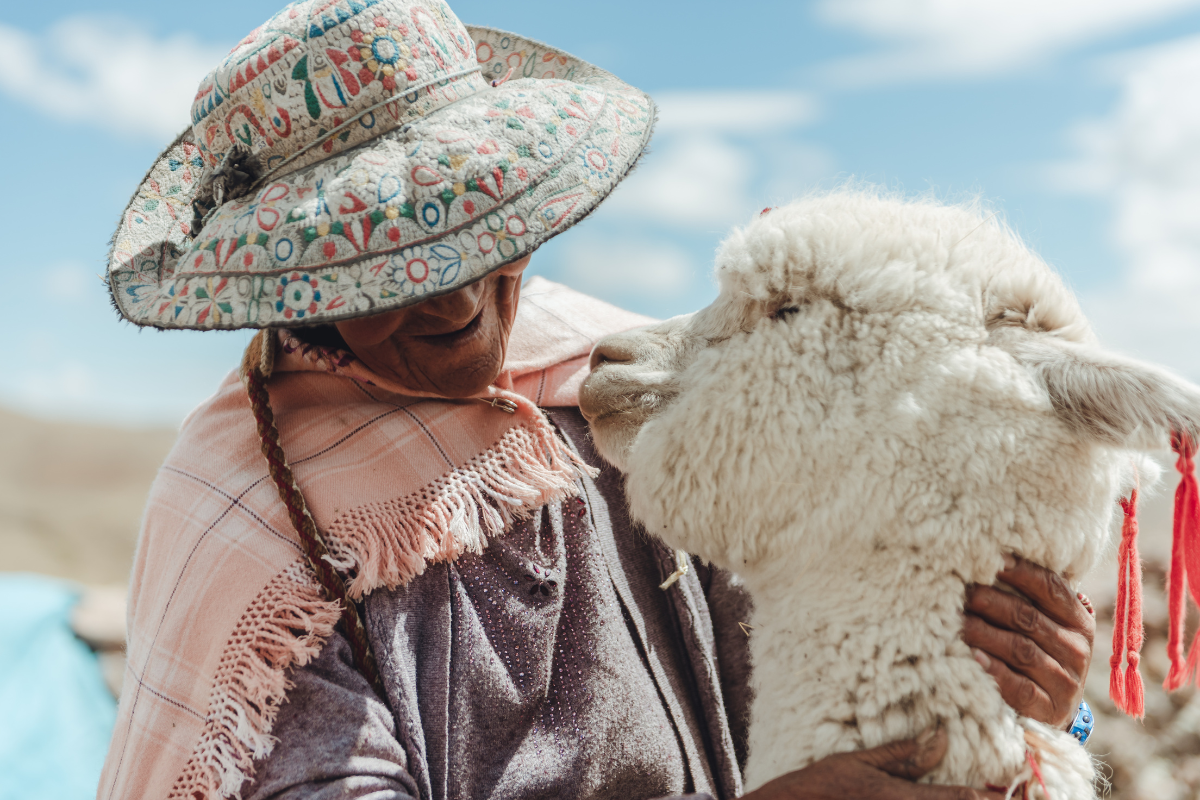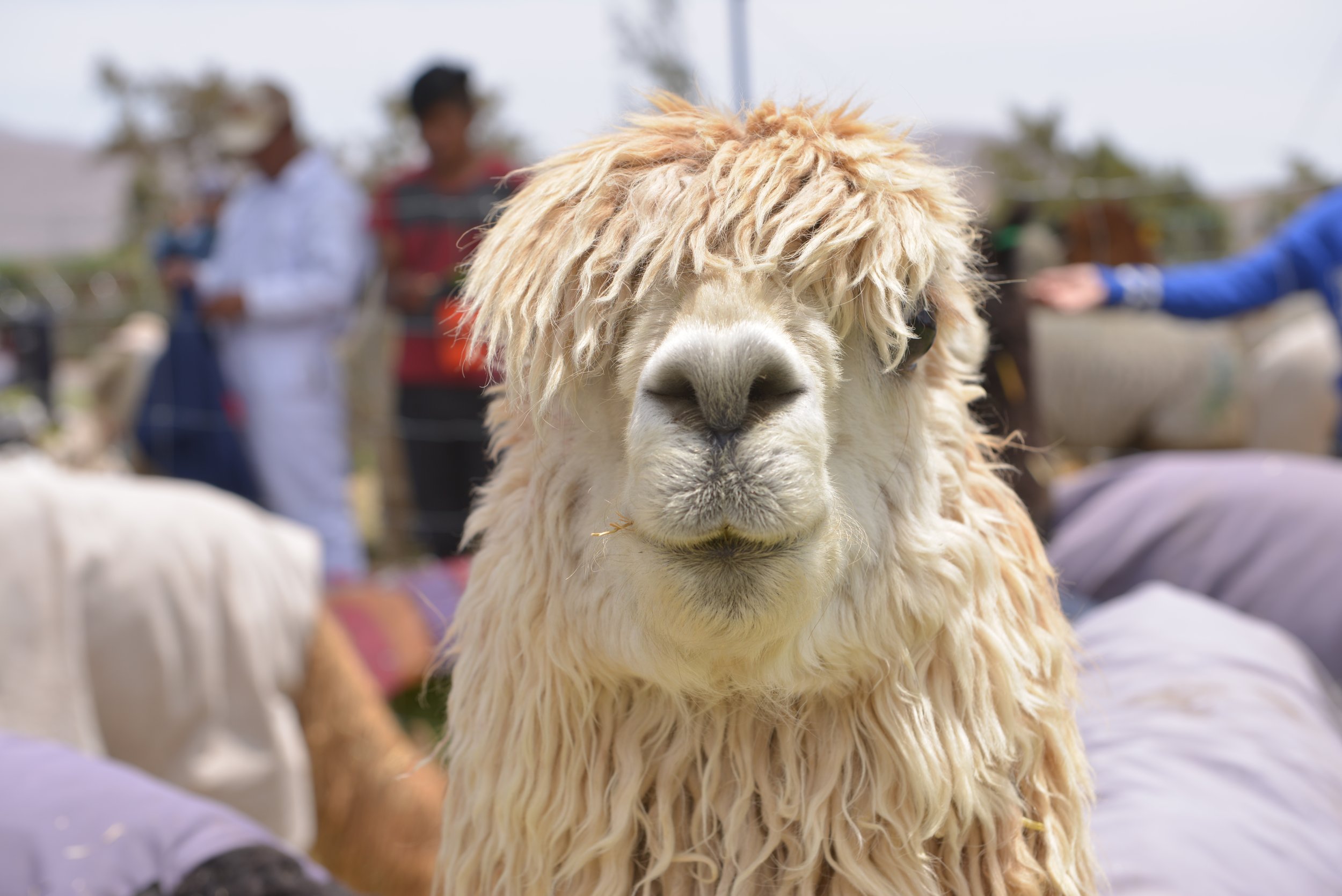Building a Sustainable Winter Wardrobe
Featuring PAKA
Picture waking up on a snowy day, snuggling in to an afternoon reading by the fire. Or, maybe the snow calls to you as a day to explore, venture out and leave the technology at home. Either way, an essential part of a snow day is the coziest sweater in your closet calling your name, ready to be part of the day’s adventure.
What makes the sweater the favorite on a day such as this? Maybe it’s the soft touch, the warmth, or the way it feels like a hug all day long. But, have you ever read the fine print to see what it is you are actually wrapping yourself up in? Have you ever questioned, just as you (hopefully) read the ingredients of the food you eat, what is this sweater made of, where does it come from, is it even healthy to wear (did you know clothing can be unhealthy)?
If you take a look at most cozy clothing tags, I can guarantee the fabric composition is a majority polyester, with a percentage or two sheep’s wool or cashmere, hardly enough to call it sustainable. Plus, there is so much more to healthy-choice fabrics than the material itself. Considerations including how the fabric is sourced and processed, traceability, garment workers’ rights, and environmental implications play a huge role in determining the impact of the item. You need to consider the function of the item, beyond just the beauty.
So then, what should you wear as the temperature drops? This is where PAKA comes in.
Outfitted: Men’s Baselayer
The fuzzword on the street is alpaca is the new black
PAKA is an all-natural brand innovating alpaca fiber into all-purpose clothing, promoting outdoor adventures, conscious consumption, and creator support.
What first caught my attention when introduced to PAKA is their landing page quote,
“The most versatile fiber wasn’t made in a lab.”
Simple, yet profound. Why are we converting fossil fuels to fibers when there are all-natural solutions already available? Read on to find out why alpaca wool is becoming the most coveted material for sustainable winter wear.
Consumers, creators, alpacas alike
Alpaca Health
Featuring the PAKA alpacas
Indigenous to the Andes Mountains, alpacas have evolved to thrive in environmental extremities, making their wool durable, insulating, thermoregulating, moisture-wicking, odor-resistant, hypoallergenic, lightweight, and wonderfully soft (Phew! Is there anything this fiber can’t do?).
The Peruvian farms allow the alpacas to roam free, so they can live their best life (while making ours more fashionable!). In addition, alpacas need to be sheared annually to maintain their health and ability to deal with their environment, so the derivation of clothing from their fiber is a regenerative step instead of discarding it altogether, and the special shearing technique that PAKA uses is a stress-free experience for the alpacas (just as we enjoy going to the hairdressers for that well-groomed coif). Note to all my vegetarian/vegan and animal rights advocate friends, wearing alpaca fiber is actually a way to support their health!
The Experts
Weaver alpaca moment
The beauty behind PAKA is they work directly with the alpaca experts — the women weavers and alpaca farms in Peru. At their core is the mission, “Consumers and creators made equal” so you can rest assured that the clothing creators are receiving fare wages, their needs are met, and they are empowered to make this work into a career — not just a means of making enough money for food.
Beyond pay, PAKA provides full-time daycare for the weavers’ children, supports single mothers coming from domestic violence and sexual abuse (by partnering with Ministry of Vulnerable Populations), commits 1% of annual revenues to improving the livelihoods of the farmers in Peru and regenerative alpaca practices (by partnering with the International Alpaca Association) and another 1% to college scholarships for young women in Peru (by partnering with Peruvian Hearts). Any brand that emphasizes female empowerment is an absolute winner in my book.
The Product
Now for the fun part, all the “fuzzwords” that accompany PAKA (see definitions below). They are a B-corporation, aim to be fully carbon-neutral, their packaging is biodegradable and compostable, their alpaca wool is fully traceable and OEKO-TEX certified, and their dyes are environmentally friendly (OEKO-TEX and GOTS certified; aka, no chemical-based dyes coming in contact with your skin or contaminating water sources near the farms — you guys know how I feel about toxic dyes!).
Looking for more details on their product development process? Check out their Origin program, here.
Ready to add PAKA to your winter capsule wardrobe? Check out my selections below:
The Crew
The Crew is a super soft long sleeve with a relaxed fit hitting just past your waist. The unisex sizing makes it perfect for both women and men of all body shapes (there’s a great tool on their site to determine your size).
Living by the beach in New England, I’ll be sporting this through the fall and winter, without the need for excess layers! Shop it here.
The Hoodie
The Hoodie is their best-selling unisex piece. Similar relaxed fit to The Crew, with the addition of flexible knitting and a hood for ultra-coziness. The thermoregulating properties of alpaca wool will keep you temperature regulated all throughout your adventures in this piece! Shop it here.
The Baselayer
The Baselayer is a lightweight form-fitting long sleeve, perfect for fall days or layering under The Crew or The Hoodie. The fabric blend of alpaca and tencel (a plant-based, cellulose-derived fiber) makes it flexible and comfortable all day long. Shop it here for women and here for men.
Accessories
Complete your PAKA ‘fit with their Heathered Charcoal Beanie (thick enough to keep you warm, thin enough to fit under a ski helmet), Costa Socks (ultra-warm knit to keep your toes toasty!), and Neckwarmer (coming soon!).
Additional Features
The detail-oriented nature of PAKA is something I really appreciate. All sweaters are signed by the woman that made the piece, and your order is complete with a woven bracelet and sticker of Sebastian the alpaca (say hello below!). This makes you feel connected with the brand, weavers and the beautiful animals to whom we have to thank for these pieces.
The balance of function and beauty make their pieces essential for your cold-weather capsule wardrobe, as their clothing will last for years to come. So, say hello to Sebastian, do some shopping, and go outside!
Fuzzword definitions, please:
B Corporations adhere to levels of transparency, ensure ethical employee treatment and charitable giving, and demonstrate positive environmental impact.
Carbon neutrality is achieved by balancing carbon dioxide emissions with the removal of carbon dioxide from the environment (resulting in net-zero CO2 emission).
Traceability is a wonderful way for a brand to be transparent in their fiber production. PAKA’s technology allows you to find the exact coordinates where your fiber was sourced.
GOTS (Global Organic Textile Standard) and OEKO-TEX certifications ensure that the all-natural clothing is truly organic and not processed with toxic chemicals and dyes.
Disclosure: This post is sponsored by PAKA and includes affiliate links. As always, all opinions are my own.










